Why isn’t there an OWL version of Dublin Core?
We’ve known about the Dublin Core (http://www.dublincore.org/) pretty much forever. We know it has a following in Library Science and content management systems, and Adobe uses their tags as the basis for the XMP (www.adobe.com/products/xmp/). And we knew that at least one of the original architects for the Dublin Core, Eric Miller (www.w3.org/People/EM/) is now deeply invested in the Semantic Web. So, we knew it was just a matter of time until we came to a client who was implementing a content management system, using the Dublin Core tags and who wanted to integrate that with their Enterprise Ontology. We assumed there was a Dublin Core OWL implementation just for this purpose. If there is, it’s pretty well hidden. (One of my motivations in this writing is to see if this brings it out of the woodwork). The obvious one (the one that comes up first in a Google search) is from Stanford (protege.stanford.edu/plugins/owl/dc/protege-dc.owl).
On closer inspection, the only OWL property used in this ontology is the owl:annotationProperty (comment). The rest of it is really just naming the tags and providing the human readable definitions. But this really isn’t helpful for integration. It turns out there are several other problems with the Dublin Core for this type of usage. For instance, the preferred usage of the “creator” tag is a LastName, FirstName literal. LastName, FirstName is pretty ambiguous.
There are a lot of “Smith, John”s in most corporate databases, and in many cases we know much more precisely (to the urn: level) which John Smith we’re dealing with when we capture the document. We have built an OWL version of the Dublin Core suitable for integration with Enterprise Ontologies. We ended up, I’m sure, re-inventing the wheel. I’m on the road again starting tomorrow, but within a week or two we expect to have it vetted and out in a suitable public place. In the next installment I’ll go over some of the design tradeoffs we made along the way. By the way, what suitable public places are people going to for their ontologies these days?

